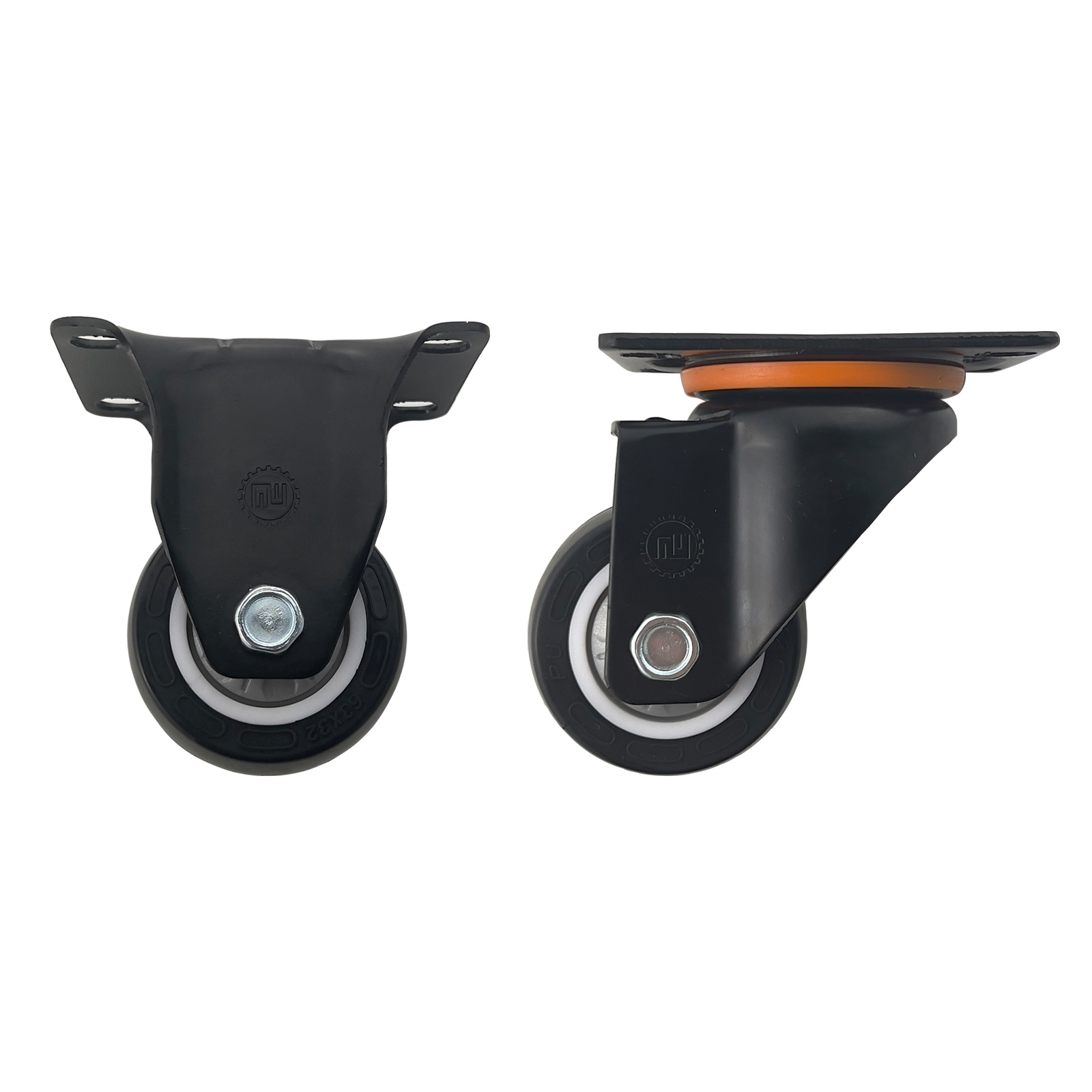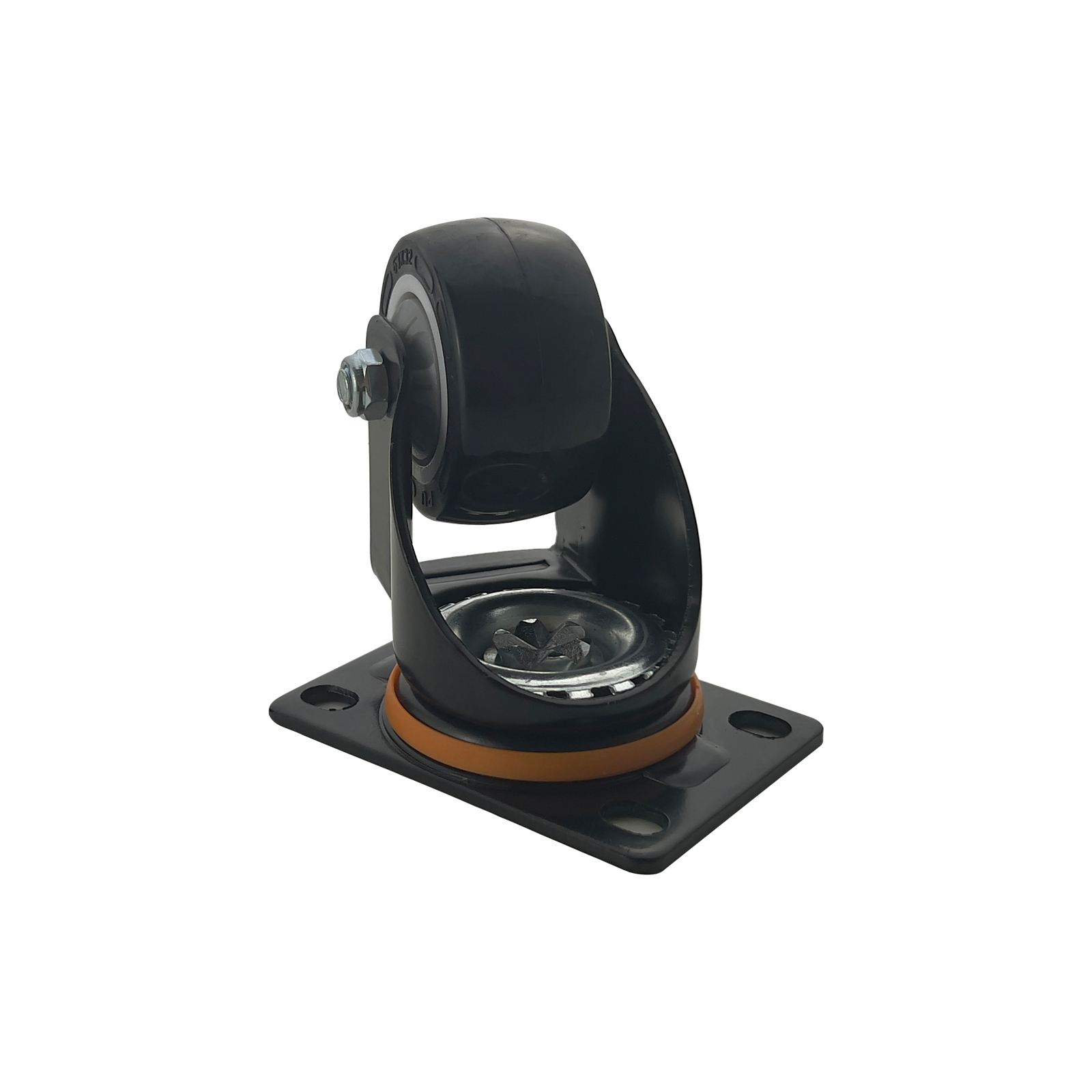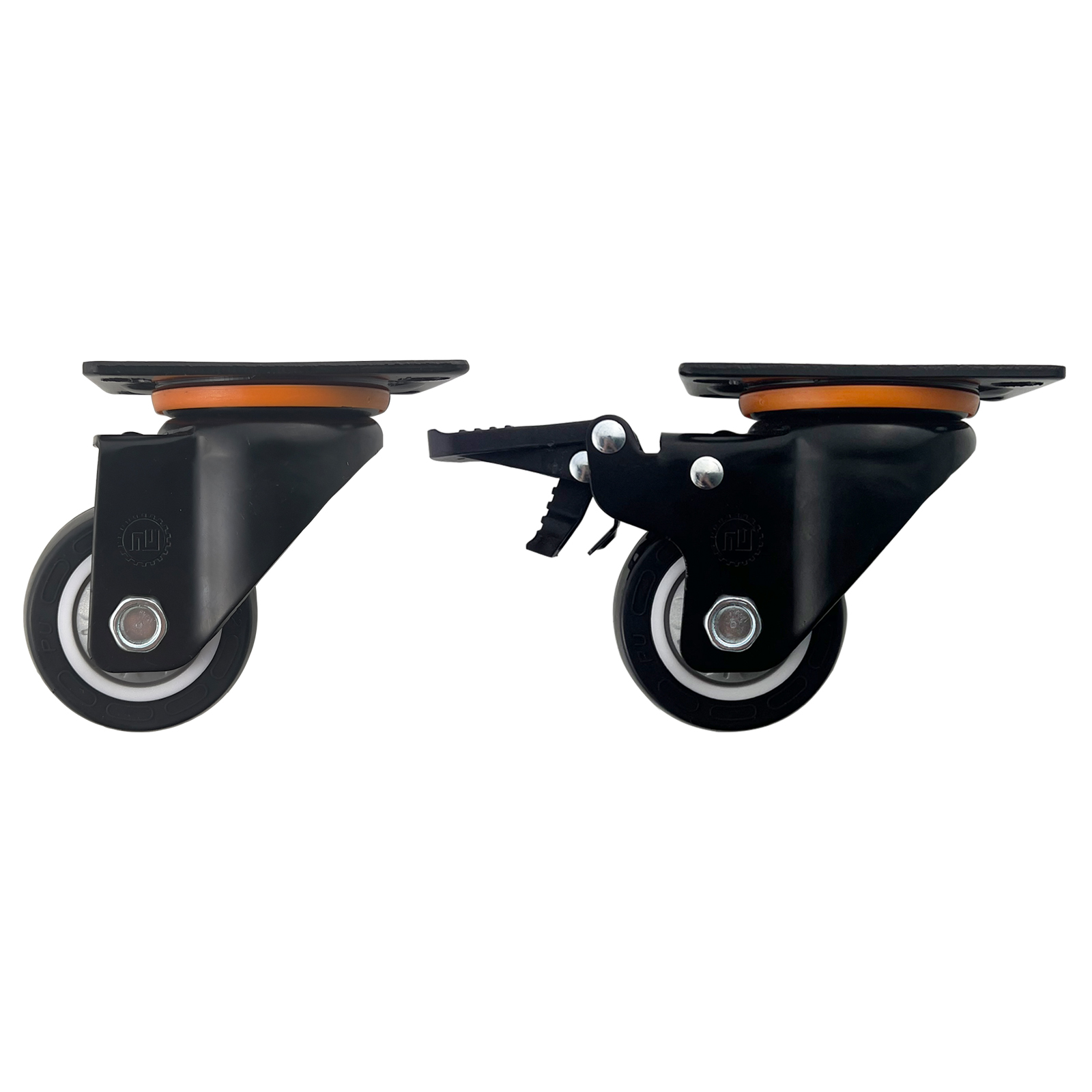Polyurethane wheels have emerged as a popular choice in various industrial applications, particularly for their exceptional floor protection capabilities. These wheels are made from a versatile polymer that combines the benefits of rubber and plastic, making them ideal for environments where both durability and floor integrity are paramount.
Advantages of Polyurethane Wheels
Superior Floor Protection
One of the most significant benefits of polyurethane wheels is their ability to protect floors. Unlike harder materials like steel or cast iron, which can cause scratches and dents, polyurethane wheels have a larger footprint that distributes weight more evenly. This design reduces stress concentrations on the floor, helping to maintain its condition over time.
Noise Reduction
Polyurethane wheels are renowned for their noise-dampening properties. They operate more quietly than traditional metal wheels, making them suitable for environments where noise levels need to be minimized, such as hospitals, offices, and retail spaces. The material absorbs shocks and vibrations, allowing for smoother movement over uneven surfaces, which further contributes to a quieter operation.
Enhanced Load Bearing Capacity
Polyurethane wheels can handle significantly higher loads compared to rubber alternatives. They are designed to withstand heavy-duty applications without compromising performance making them an excellent choice for industrial settings where equipment and materials can be quite heavy.
Corrosion and Chemical Resistance
Another advantage of polyurethane wheels is their resistance to various environmental factors. They can withstand exposure to moisture, oils, and many corrosive chemicals, which is vital in industries such as food processing, pharmaceuticals, and manufacturing. The durability of polyurethane extends the lifespan of the wheels and reduces the frequency of replacements.
Versatile Applications
Polyurethane wheels are suitable for a wide range of applications, from light-duty tasks in retail environments to heavy-duty operations in manufacturing and logistics. They can be customized in terms of size, hardness, and tread patterns to meet specific operational needs.
Applications of Polyurethane Wheels
Industrial Equipment
In industrial settings, polyurethane wheels are commonly used in carts, trolleys, and other equipment that require frequent movement. Their ability to carry heavy loads while protecting the floor makes them ideal for factories and warehouses.
Healthcare Facilities
Hospitals and clinics benefit from the quiet operation of polyurethane wheels, which helps maintain a serene environment for patients. Additionally, their resistance to chemicals makes them suitable for environments where sanitation is critical.
Retail and Hospitality
In retail spaces, polyurethane wheels facilitate the smooth movement of display units and carts, enhancing customer experience. Their floor protection capabilities ensure that the aesthetics of the store are maintained over time.
Food and Beverage Industry
Given their resistance to moisture and chemicals, polyurethane wheels are often used in food processing and beverage industries. They can withstand spills and cleaning agents without deteriorating, making them a reliable choice for food-handling equipment.
FAQs about Polyurethane Wheels
How do polyurethane wheels compare to rubber wheels in terms of durability?
Polyurethane wheels significantly outperform rubber wheels in terms of durability. They can last up to three times longer than rubber under controlled testing conditions due to their superior resistance to wear and abrasion. Polyurethane's hardness and structural integrity allow it to handle heavier loads without deforming, while rubber tends to lose tread and structural integrity over time. Additionally, polyurethane wheels are more resistant to chemicals, moisture, and environmental factors, making them suitable for demanding industrial environments.
What are the different types of polyurethane wheels available for various environments?
Polyurethane wheels come in various formulations tailored for specific applications, including:
Standard Polyurethane Wheels: Ideal for general-purpose use, offering good load capacity and floor protection.
Corrosion-Resistant Polyurethane Wheels: Designed for environments exposed to chemicals and solvents, these wheels resist degradation from harsh substances.
Outdoor Polyurethane Wheels: Mold-resistant and capable of withstanding wet conditions, making them suitable for outdoor applications like landscaping and construction.
High-Load Polyurethane Wheels: Engineered to support heavy loads, often used in industrial settings where durability and strength are critical.
Can polyurethane wheels be used in outdoor industrial applications?
Yes, polyurethane wheels can be effectively used in outdoor industrial applications. They are resistant to moisture, mold, and mildew, making them suitable for environments that experience wet conditions. However, it's essential to consider that while the polyurethane itself is durable, the wheel core (if made of metal) may rust if exposed to water, so selecting the right wheel configuration is crucial for outdoor use.
How do polyurethane wheels contribute to noise reduction in industrial settings?
Polyurethane wheels contribute to noise reduction primarily through their shock-absorbing properties. They effectively absorb shocks and vibrations from uneven surfaces, resulting in a quieter operation compared to harder materials like steel or cast iron. This quality is particularly beneficial in environments where noise levels need to be minimized, such as hospitals and offices, helping to protect workers' hearing and maintain a more pleasant working atmosphere.
What maintenance is required for polyurethane caster wheels?
Maintaining polyurethane caster wheels is relatively straightforward and involves:
Regular Cleaning: Wipe the wheels with a damp cloth to remove dirt and debris, preventing buildup that could affect performance.
Lubrication: Periodically lubricate the wheel bearings to ensure smooth operation and reduce wear.
Inspection: Regularly check for signs of wear or damage. Early detection can help prevent further issues and extend the wheels' lifespan.
Conclusion
Polyurethane wheels are an excellent investment for industries that prioritize floor protection, noise reduction, and durability. Their ability to handle heavy loads while providing superior floor care makes them a versatile choice for various applications. As businesses continue to seek efficient and effective solutions for their operational needs, polyurethane wheels stand out as a reliable option that combines performance with longevity. By using polyurethane wheels properly, you can enhance their operational efficiency while safeguarding their facilities' floors.


